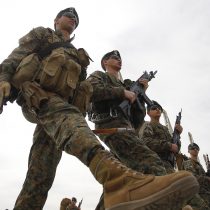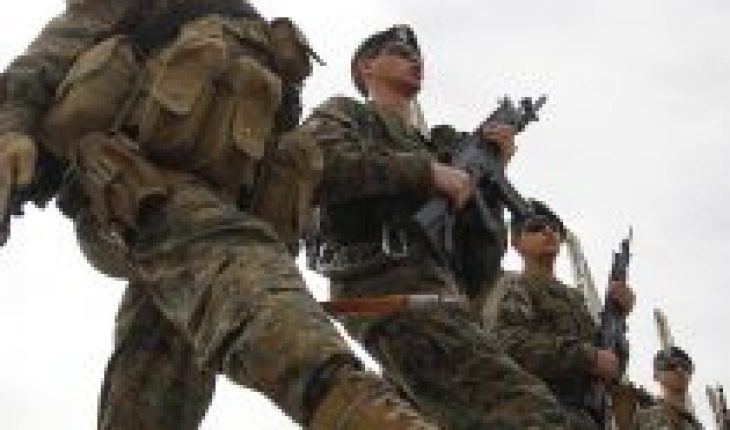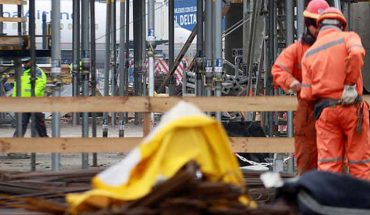
The debate generated about the inclusion of and in-chief commanders of the Armed Forces in public opinion polls, while discreet and subtle, suggests some clarifications regarding the relationship between the defence function and public opinion.
It is well known that defense is one of the basic functions of every organized society. It shares this condition with the internal government, the management of the public finances and the administration of justice. Classical doctrine is virtually unanimous in this. In recent times, foreign relations have been added to all four functions. There are no hermits in the international system – albeit a few out of parias – and hence their external ties have become a fundamental component of political action by every state.
The defense function, for proper and efficient execution, requires important levels of legitimacy. By the way, this is substantial to all public functions but in the case of defense it has some special connotations. At the outings of the function, the FFAA, are the detentators of the legitimate force of the state. In addition, the defense function involves considerable financial resources. Virtually every form of military might is costly and the resources involved must compete with those assigned to other public functions, usually in disadvantageous conditions. All this raises the threshold of social legitimacy and associated with this that of public scrutiny. It’s a natural effect and there’s nothing negative about it.
The legitimacy of the defence function rests on public knowledge of how it is executed. This poses some complexities. Therefore, the execution of the defense function requires some level of reserve – a condition it shares with foreign policy. In the information world those dimensions are smaller, but they exist. The central thing is then to strike a balance between public information and reserve preservation in the most complex and sensitive issues. In this, democratic systems have extensive experience. Comparative practice indicates that it is possible to adequately inform the public without compromising sensitive information.
There are several ways to inform the public. Possibly the highest hierarchy is the inclusion of defense stays in the public account of the Head of State or Head of Government, a practice widespread in political systems. Defense white papers are another mechanism. In fact, illustration of public opinion is one of its tasks, together with the general guidance on the exercise of the defence function and the communication of intentions and strategic attitudes to other international actors. Intellectual root events in defence academies are also suitable mechanisms. On a more tactical level, if expressable, military institutions often organize events in which civilians can interact directly with military personnel and land, air and naval means. And even the film industry can also be a valid instrument for this purpose; hence the collaboration it establishes with the ministries or defense departments of some countries.
Adequate information about the defense function is a fundamental component of a nation’s strategic culture, which in turn is a fundamental precedent for the legitimacy of the defense function. Thus a kind of virtuous circle closes with regard to an indispensable function on the international stage, today as yesterday, in any geostrategic scenario.
In Chile, the dissemination of the defence function – even before the concept was coined – has been nurtured by all these avenues, with the possible exception of the cinematic instrument. Of course, the count to the nation of the President of the Republic has traditionally included a stay on national defense, although it has normally been one of the least relevant, reflecting the swings of this function in political optics, especially during the twentieth century. Then, since the 1990s, the Defense Books have been a valuable and functional instrument. In the intellectual order, the National Academy of Political and Strategic Studies and the war academies of the Armed Forces have made a constant contribution to the strategic acquis of informed public opinion. From time to time, some university programs have also made a significant contribution in this same regard. And by the way, the Armed Forces have traditionally organized open days in regiments, air bases and naval units.
Consequently, it remained to know what effects all these instruments for dissecasting the role of defence in public knowledge. Opinion studies on citizen perception began in the mid-1990s, both academically and officially. Consistently, the results have been favorable to the Armed Forces and through them to the defense function, allowing them to assume their social legitimacy. Of course, citizen perceptions have experienced fluctuations but this is natural and certainly does not just affect defense.
Certainly, it is possible to argue around the temporary desirability of keeping the armed forces in social perception studies, but there is no doubt that it is relevant to know the levels of social legitimacy that the role of defence has, especially in highly evolutionary scenarios at the international level and that it will also demand a great lot of governance effort in the years to come.
translated from Spanish: Public opinion and defense function
May 21, 2021 |





